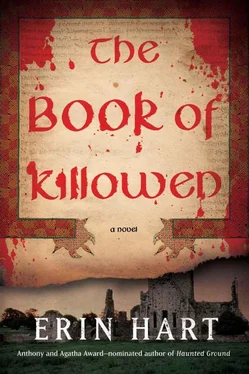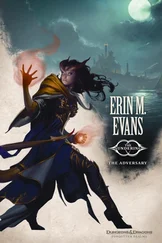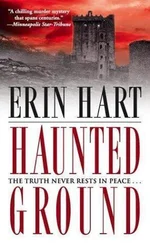Looking in the mirror each morning, she could see how her hair, her eyes, had gone dull. Her eyesight was going; she had to squint to read anything. She felt the scratch of the safety pin hitching up her brassiere strap and glanced down at the hem of her sleeve, held together with a staple. Pathetic. She was barely holding it together most days—maybe no one had blamed Barry Cusack for walking out. What happened when you turned out to be a stranger, even to yourself?
Stella ripped off her rumpled suit with its stapled sleeve and flung it on the floor. She stripped off her blouse and bra and knickers, and dumped a whole drawer full of faded, worn-out underclothes onto the pile. Into the feckin’ rubbish bin with all of it—she was sick to death looking at it. It was only when she put her hand on the kitchen door handle to peg the pile of clothes outside that Stella realized she was stark naked. Retrieving one pair of knickers, she put on her favorite plush tracksuit and returned to the kitchen, where she poured herself a large glass of wine, and pushed everything from the table.
She pulled out the missing person file on Benedict Kavanagh. The photo inside was the same one she’d received on her phone: a vigorous face, perhaps forty years of age, with intense blue eyes, an aristocratic-looking nose and cheekbones, well-formed lips. He was clean shaven and beginning to gray at the temples. Dynamite on television, one would imagine. Stella tried to visualize this man cocking an eyebrow and delivering a verbal deathblow to his debating opponent.
She started making a list of the interviews they’d have to launch: Kavanagh’s wife and all known associates, anyone else who might have benefited from his death. Surely a serious scholar like Kavanagh would have professional rivals. He was also on television, which meant he could have been killed by an obsessed viewer who took exception to something he’d said or, as Maguire had mentioned, perhaps by one of the many guests he’d enjoyed humiliating. Then there were the locals: Vincent Claffey and his daughter, Claire Finnerty and her crowd. A long list.
But the wife was first priority—after all, who had more motive for killing a man than the one person who knew him most intimately? The next thought unsettled her. What if the person who knew a man most intimately wasn’t his wife? Happened all the time. And yet another motive for the spouse. Kavanagh’s wife had kept her own name—Mairéad Broome. Molloy’s “in her own right” comment pricked at her again. According to the file, at the time of her husband’s disappearance, Mairéad Broome had recently been elected to the Aosdána, the national artists’ association, and had just launched her first solo show. How was Benedict Kavanagh reacting to his wife’s increasing success? On that, the file was mum.
Stella reached for a fresh sheet of paper and began listing locations she ought to visit: the crime scene at the bog, Killowen, Claffey’s place; an arrow pointing eastward stood in for Kavanagh’s home in the city and the Dublin Academy for Advanced Scholarship, where he was a fellow. What did that mean, exactly? Did he teach, or was it mostly research? And what sort of research was involved in a field like philosophy? Stella had little exposure to the world of academia and found herself intrigued by people who could work up a froth splitting hairs over a single word. Then there was the whole political side of things, the usual hurts about who got passed over for chairmanships and committees, the pressures of publication, how the system turned a few academics into stars and the rest into pillocks. All of Stella’s firsthand knowledge of workplace politics came from her time in the Guards, but how different could it be, really? Human beings were essentially the same selfish, venal creatures no matter the sphere.
She flipped through the contents of the files: interviews with his wife, the producer of his television program, his colleagues at the academy, the neighbors. Everyone had a slightly different take, it seemed, so the portrait of Kavanagh ended up like one of those dotted paintings she’d seen once in a museum. Stand too close, and you couldn’t make out the image. Only by stepping back could you get any perspective. She forced herself to focus on Benedict Kavanagh’s habits, his routines. From what she was gathering, he’d had a rather light teaching schedule—one seminar, which met once a week on Monday afternoon. He wrote every morning between eight and eleven, and prepared for his television program after lunch. The show taped from four to six on Thursday afternoon.
Stella had an impression that the interviewees were holding back, not telling all they knew about Benedict Kavanagh. Words like “difficult” and “brilliant” seemed to recur with regularity, almost always in the same breath, as if you couldn’t be one without the other. He had gathered a chosen few around him, a coterie that his larger circle—behind his back, of course—had gleefully dubbed “the Children of a Lesser God.”
Benedict Kavanagh had grown up in Dalkey, the pampered only son of a prominent heart surgeon and his wife. Had a stellar career as a student, earned multiple degrees at University College Dublin, and slipped naturally into a cushy post at the Dublin Academy for Advanced Scholarship. What he did there apart from the single seminar was anyone’s guess, but he was paid a decent salary for it. Nothing out of place in his financial dealings. From the look of things, he traveled and lectured in Europe and America, on his particular area of expertise, listed as “Neoplatonist Philosophers of the Carolingian Court.” Someone had included the title of one of Kavanagh’s papers: “Eriugena’s Commentary on the Dionysian Celestial Hierarchy.” Stella stared at the words on the page, struck by the notion that they were legible, neatly typed, and in English. They might as well have been Swahili or Cantonese for all they communicated to her. What prompted people to delve so deeply into a subject that their work was incomprehensible to the vast majority of the planet’s population? Perhaps this was a man who’d been raised to believe that he had no equals. That kind of thinking led to all kinds of dangerous situations, in her experience.
The details surrounding Kavanagh’s disappearance had been tracked four months ago, as far as possible: he’d taped his program as usual on a Thursday afternoon, and no one reported him missing until his wife phoned the Guards on the first of May. After the taping session, the trail had gone cold. His seminar was not scheduled to meet on the following Monday because it was a bank holiday weekend; there were no cashpoint withdrawals, no credit card receipts, nothing to pinpoint where he went or with whom. His car did have an eToll tag, but he’d evidently avoided the M7 motorway on his route to Killowen; there was no record of his tag activating the system. Was he deliberately trying to evade detection for some reason?
Stella found herself resenting the fact that this case would probably be handed over to Serious Crimes in Dublin, as if she and her colleagues weren’t capable of investigating a high-profile murder. But that was the way politics was played these days in the Garda Síochána—the big-city task forces wanted any case guaranteed to bring them a dose of media attention, which helped justify their existence in the minds of people in charge of budgets and bottom lines. But even if it came to that, they couldn’t stop her from doing her own inquiry. She kicked herself for not going to Dublin herself right away, this evening, to speak with Kavanagh’s wife.
Even though Benedict Kavanagh was a minor celebrity, and news of his disappearance had been all over television for a short time, no one had come forward to report seeing him after he’d finished the taping session. His wife had been out of town herself and only reported him missing ten days after he was last seen. News of his body turning up might now bring out someone who remembered clapping eyes on him, and then again, it might not. Serious Crimes would be working that angle anyway; using the media to flush out witnesses was their specialty, not hers. But she had tools of her own. She had seen the body out on the bog—those bulging eyes, the distended cheeks. This crime was not about money or abstract intellectual principle. Benedict Kavanagh’s death had been intensely personal for someone. The question for Stella was: For whom?
Читать дальше












